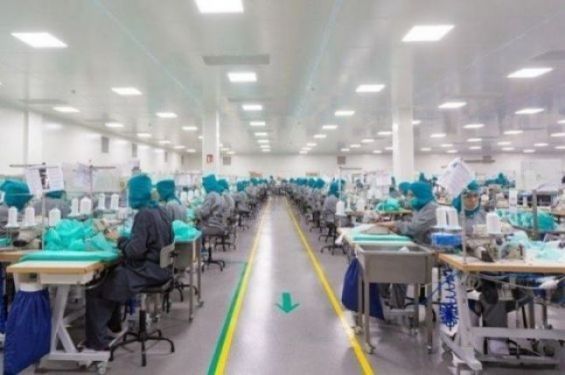In a report on «The Impact of COVID-19 in Morocco: Macroeconomic, Sectoral and Regional Effects», four researchers have drawn up the first detailed assessment of the ramifications of the crisis.
In a strategic note which describes the transmission channels of the Covid-19 shock on the Moroccan economy, four researchers have drawn up a «first detailed assessment of the ramifications of this crisis».
They describe it as «singular, multidimensional and fundamentally different from previous crises». «Our analyzes agree on the extent of the crisis and reveal a severe contraction in economic activity of nearly 7%, mainly as a result of lockdown measures and the drastic drop in foreign demand», the report reads.
A crisis that affects society and the economy
The note mentions a «regional distribution of the shock [which] is not uniform». It also reports «greater exposure of regions of the country where the informal sector is important, the rate of the public sector is low and tourism and manufacturing activities are predominant».
Therefore, «the greatest economic losses should be observed in the regions of Casablanca-Settat, Tanger-Tétouan-Al-Hoceima and Marrakech-Safi, while the least affected regions, possibly, being those of Dakhla-Oued Eddahab, Guelmim-Oued Noun and Laâyoune Sakia el-Hamra», it continued.
As for the domestic social and macroeconomic balances, the researchers indicate that «the deep recession would have more impact on the most precarious social classes». «It would lead around 1 million people into poverty and about 900 thousand others below the line of vulnerability», the PCNS added.
The internal and external macroeconomic indicators of the Moroccan economy would be «subjected to severe tests during the year 2020 and the twin deficits would be between 6% and 8% of the GDP». The note adds that at the domestic level, "the deterioration of the budget deficit would reflect more a foreseeable fall in tax revenues rather than a deliberate increase in budgetary expenditure». As for the balance of payments, «the current account would have suffered considerably from the sudden stop of tourism receipts and the deep contraction in exports of goods and services».
«There is great uncertainty about when and how the economic recovery will take place. The form of the recovery will depend, in particular, on the resilience of the health system, the effects of economic policies aimed at supporting households and businesses, as well as the availability of an effective vaccine», the report added.
For a «macro-prudential» policy and «effective» social policy
The note indicates that a «gradual U-shaped recovery profile could be the most likely scenario for Morocco», which «may require a period of resilience during which economic fundamentals must remain strong».
The authors also raise several recommendations for dealing with the recession. The PCNS suggests that the lever of «targeted spending» be activated for a counter-cyclical orientation of fiscal policy. «While public investment may turn out to be the preferred choice to support economic activity, it is essential to favor investment projects with an almost immediate impact on economic and social activity», the authors said.
They also recommend a macro-prudential policy, arguing that it is «essential that explicit reaction functions be set up to allow an automatic triggering of this range of measures whenever our position in the economic or financial cycle requires it».
The PCNS note considers that for a sustainable recovery, a «balanced policy mix» based on an even more flexible exchange rate regime would be necessary. It proposes, in this sense, to «resize the role of the exchange rate in the macroeconomic management equation». «By giving more flexibility to the exchange rate to adjust according to the traditional rules of supply and demand, the economic authorities would set up safeguards to avoid any slippage of stimulus policies and more accentuated external imbalances».
Finally, the note recommends adopting «an effective social policy», «making digital transition strategies a national priority» and «involving local authorities in decision-making».




 chargement...
chargement...












